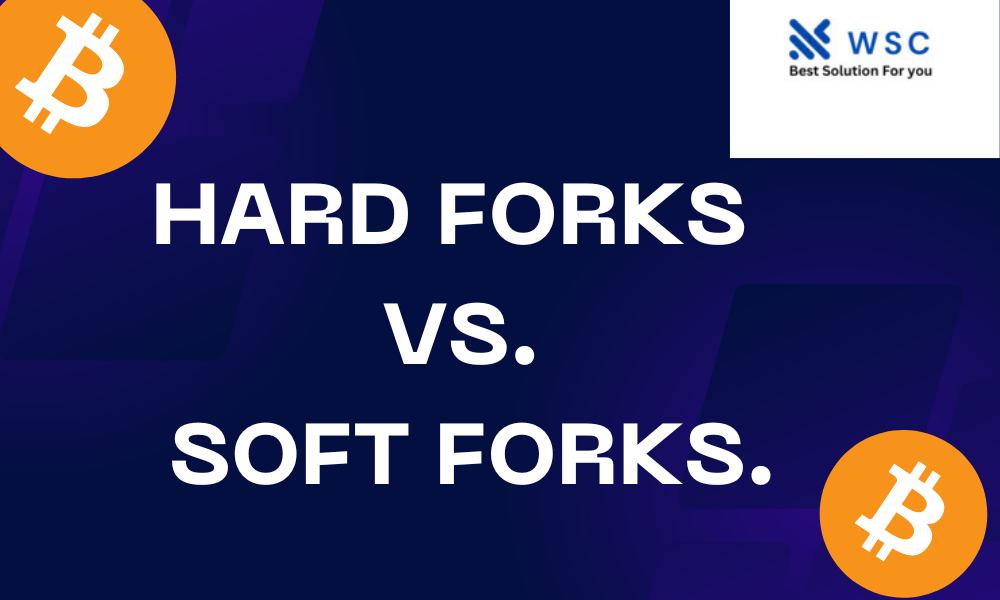Blockchain, the backbone of cryptocurrencies, occasionally undergoes transformative changes known as forks. These forks, categorized as hard and soft, play pivotal roles in shaping digital currencies’ trajectory. Let’s delve into their nuances to comprehend their significance in the realm of blockchain technology.
What are Forks?
Forks, in the context of blockchain, represent substantial alterations in the protocol governing a digital currency’s operations.
The Purpose of Forks
Forks primarily aim to implement updates, modifications, or alterations within a blockchain network, steering it towards improvement or addressing specific concerns.
Understanding Hard Forks
Definition Hard forks denote radical changes to a blockchain’s protocol that render previously invalid transactions valid, or vice versa.
Characteristics Hard forks result in a permanent divergence from the existing blockchain, leading to a split into two separate chains.
Examples Instances like Bitcoin Cash, Bitcoin Gold, and Ethereum Classic stemmed from hard forks.
Pros and Cons of Hard Forks
Advantages Hard forks facilitate significant protocol upgrades, enhancing scalability, security, and functionality.
Disadvantages However, these forks often lead to community division, reduced network security during the transition, and potential disruptions in the ecosystem.
Soft Forks Explained
Definition Soft forks, in contrast, signify backward-compatible changes to a blockchain protocol.
How Soft Forks Work Unlike hard forks, soft forks result in a tightening of rules, allowing previously valid blocks to be recognized as invalid.
Key Differences Between Hard and Soft Forks
Basis of Distinction Hard forks create permanent divergence, whereas soft forks maintain backward compatibility.
Impact on Blockchain Hard forks lead to the creation of new cryptocurrencies, while soft forks keep the existing currency intact.
Community Response
Soft forks usually receive greater consensus due to their backward compatibility, minimizing disruption within the community.
Real-life Applications
Industries Affected Forks have impacted diverse sectors, including finance, supply chain, and digital identity.
Notable Implementations Companies like Ripple and IBM have leveraged forks to innovate and evolve blockchain solutions.
FAQs
- What sparks a Hard Fork? Hard forks often arise due to disagreements within the community regarding fundamental protocol changes.
- Can a Soft Fork become a Hard Fork? Yes, if a significant portion of the network fails to upgrade to the new soft fork, it could potentially lead to a hard fork.
- How do Hard and Soft Forks affect users? Forks can affect users by influencing their choice of currency, altering transaction processes, or creating opportunities for new tokens.
- Are Forks permanent changes? While hard forks create permanent changes, soft forks can be reversed if the network chooses to upgrade fully.
- Can Forks lead to new cryptocurrencies? Absolutely, hard forks result in the creation of new cryptocurrencies, fostering diversity within the digital currency space.
- How can users prepare for Forks? Users should stay informed about impending forks, back up their wallets, and follow updates from official sources to navigate through potential disruptions.
Conclusion
In summary, hard forks and soft forks serve as crucial mechanisms for blockchain evolution. Understanding their differences, implications, and impact on digital currencies equips users to navigate the ever-evolving landscape of blockchain technology.
Check our tools website Word count
Check our tools website check More tutorial




